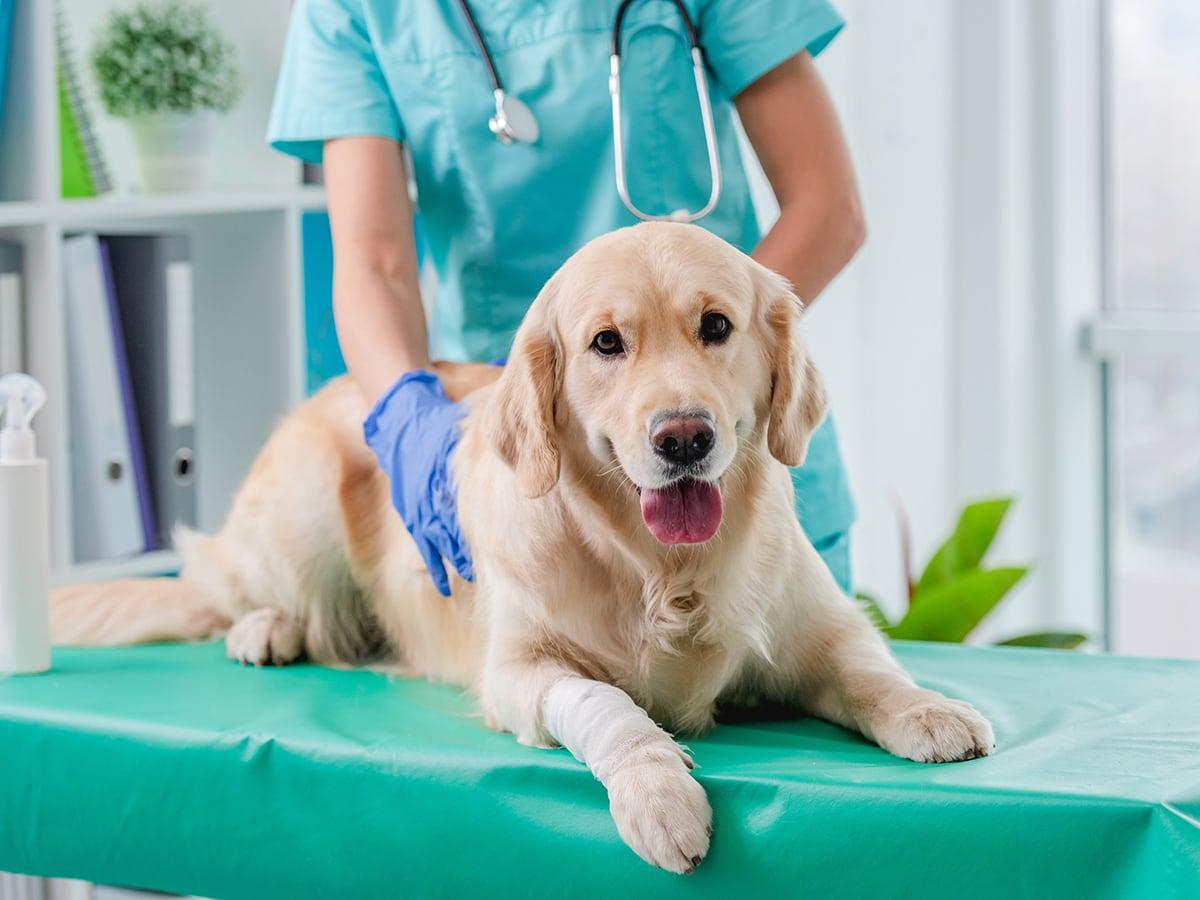Pet insurance can help cover surgery if it is to treat a condition or accident that is not pre-existing and did not happen during the waiting period. While this summarizes the topic, there is more you need to know about pets and surgery, and the role of pet insurance.
Pets and Surgery: Introduction
You never know when Mr. Snuggles or Coco will suddenly decide to swallow the toy they were playing with. Next thing you know, you’re rushing to the vet for an emergency, worried about your pet’s life. This can even happen when your pet decides to get adventurous and jump fences to explore the world, only to be hurt or involved in an accident. Instances like these can require surgical treatment.
Pets, just like humans, can also be affected by medical conditions like fever, kidney problems, stomach pains, etc. Some severe conditions, like arthritis, bladder stones, tumors, etc., can also require surgery for treatment.
Common Medical Conditions that Require Surgery in Pets
Conditions like tumors, gastrointestinal issues, or orthopedic problems sometimes cannot be cured just with medication. Below are some of the common medical problems that often require surgery for treatment –
Dental issues – Tooth extraction, gum diseases (4)
Orthopedic problems – Patellar luxation, arthritis, ligament tears, hip dysplasia, etc. (4)
Injuries – Gastric dilation volvulus (GDV), bladder stones (4)
Other conditions – Skin mass removal, cataracts, spinal surgeries, etc. (5)
There may be instances of a complication arising from a surgery. In such a case, the pet may need additional surgery.
Which Surgeries are covered by Pet Insurance?
Pet insurers usually offer two types of plans –
Surgery to treat an accident can be covered under the accident-only or accident and illness plans; surgery to treat a condition can only be covered with an accident and illness plan. Emergency surgeries can also be covered under pet insurance.
Which surgeries does Pet Insurance not Cover?
Elective surgeries - Spaying or neutering are typically not included in the base plan but can be partially covered through an additional preventive add-on.
Spot’s Platinum Preventive Care plan option helps reimburse up to $150 on spaying or neutering with no deductible or waiting periods.
Pre-existing conditions - Another exception to the insurance coverage. Even a preventive add-on will not cover them.
Cosmetic surgeries - Yes, your pet might look fabulous post-pedicure, but insurance won’t cover that kind of pampering.
Average Surgery Costs for Pets
As we mentioned above, pets can need surgery for something as small as a tooth extraction and something as big as tumor removal. The costs can vary depending on the breed, age of the pet, severity of the condition, your location, type of facility used, experience of the vet, hospitalization days, etc.
Below are the average costs for some of the common medical conditions and accidents for pets – (1)(2)(3)
Hernia - $700-$2,500
Periodontitis - $768
Urinary tract infection (UTI) - $1053
BOAS - $2,000-$2,500
ACL / CCL (ligament tear) - $1,000-3,000
Cataracts - $2,600-$4,000
Hip Replacement - $3,500-$7,000
Intestinal Blockage – up to $7,000
Is Pet Insurance Worth It for Surgeries?
Don’t forget, apart from the surgery, you’ll have to pay for additional costs like blood work, hospitalisation, medications, specialist vet visits, etc. These costs can easily add a couple of hundred dollars to the total bill.
With pet insurance, you can get reimbursed for up to 90% of the covered surgery and all related costs. With Spot Pet, you can get help with reimbursement even for follow-up vet visits, prescription diets, alternative therapies, and much more.
More About Spot Pet Insurance
Spot accident and illness plans can be used with any licensed vet in Canada or the U.S. Whether you are home or traveling to the U.S., veterinary services your pet receives for the diagnosis, treatment, or management of covered conditions can be eligible for reimbursement. Spot’s accident and illness plans can help cover a variety of conditions, including broken bones, lacerations, aggression, kidney disease, diabetes, and more. With the addition of Wellness Riders for an extra cost, you can also receive reimbursements for wellness exams, certain vaccinations, dental cleanings, and more.
Learn more about dog insurance or get a free quote!
Frequently Asked Questions
Will I be reimbursed for surgery costs, or does the vet get paid directly?
The insurance claim process usually goes like this: you pay for the bill, submit your claim, and once approved, you can get reimbursed for up to 90% (or other reimbursement % depending on your policy) of all covered costs minus the deductible amount.
Are there any waiting periods before surgery is covered?
Pet insurance policies usually have a waiting period of 14 days before the coverage starts. If your pet gets affected during this period, the surgery cost may not be covered.
Does pet insurance cover emergency surgeries?
Yes, pet insurance policies can help cover emergency surgeries. The clause here again is that the underlying medical condition must be covered by the policy, and the problem started after the waiting period.

The resident animal enthusiast at Spot. I have a lifetime of pet parent experience. If it has fur, feathers, or scales, I’ve probably shared my home with it. I aim to be a reliable source, blending experience with a dedication to the well-being of pets.
How much does a vet visit cost? Average pricing by procedure. (2024, August 5). https://www.carecredit.com/vetmed/costs/
Average cost of BOAS surgery for dogs | Expert Q&A. (2024, December 28). JustAnswer. https://www.justanswer.com/dog-health/7tqdw-average-cost-surgery-brachycephalic-airway-syndrome.html
Huffman, L. (2025, January 28). How much dog surgery costs and how to pay for it. FinanceBuzz. https://financebuzz.com/dog-surgery-cost












